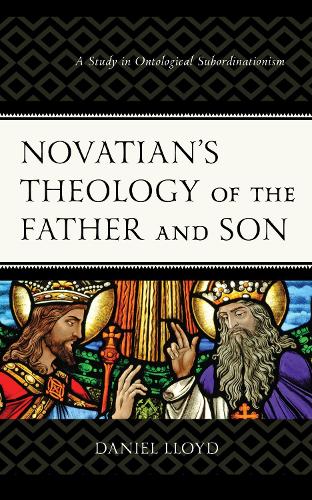
Novatians Theology of the Father and Son: A Study of Ontological Subordinationism
(Hardback)
Publishing Details
Novatians Theology of the Father and Son: A Study of Ontological Subordinationism
By (Author) Daniel Lloyd
Bloomsbury Publishing PLC
Lexington Books/Fortress Academic
23rd July 2020
United States
Classifications
Professional and Scholarly
Non Fiction
History of religion
231.044
Physical Properties
Hardback
296
Width 160mm, Height 229mm, Spine 26mm
572g
Description
Early Christian theologian Novatians (c. 200-258) work begins with the topic of the unique and supreme Father. The categories he uses to describe the Father include both traditions from Christian sources and articulations of negative theology, especially as seen in Middle Platonism. After establishing the limitations set by philosophical and theological language, Daniel Lloyd turns to the positive categories Novatian chooses for describing the Father, highlighting Novatians emphasis on revelation, evaluating the parameters of the uniqueness of the Father, and showing that his theology presents the Father as distinct in attributes such as incomprehensibility, eternality, and inability to change.
Having presented Novatians theology of the Father as the center point of his thought, Lloyd next assesses Novatians theology of the Son, showing that his categories and terminology, even to the point of calling the Son God, do not function against his theology of the unique Father. Novatian has many resources for speaking about the Sons divinity in a way that does not contradict his theology of the Father. Lloyd presents and analyzes these resources to demonstrate that the Sons status as ontologically subordinate to the Father is the best reading of De Trinitate.
Reviews
Despite the significance of Novatian for our understanding of early Latin Christianity, excellent studies of his thought are few and far between. Daniel Lloyd offers the best study in years, working from Novatians philosophical context to arrive at a compelling account of Novatians conception of divine transcendence, theological epistemology, and the relationship between Father and Son. -- Anthony Briggman, Candler School of Theology
Author Bio
Daniel Lloyd is associate professor in the Philosophy, Theology, and Religion Department at Saint Leo University.
